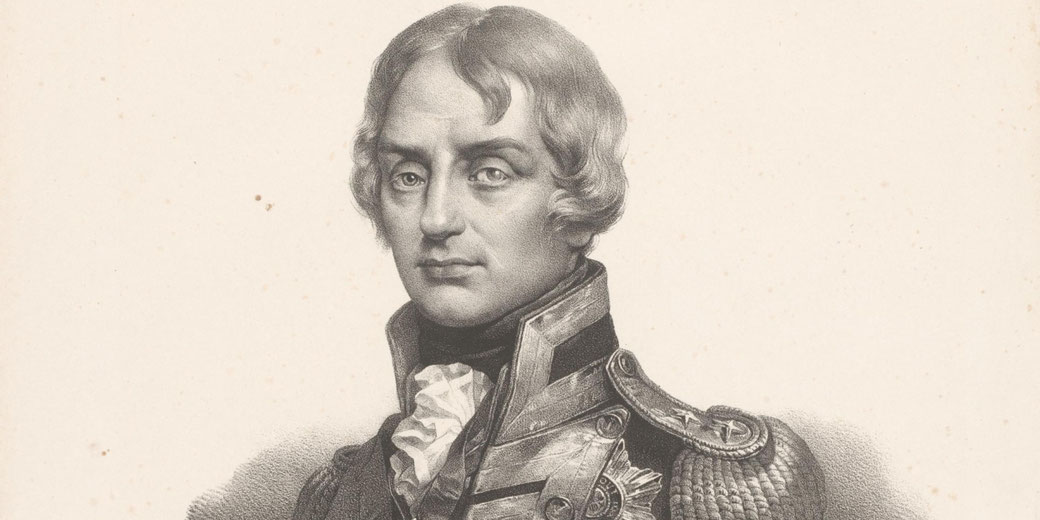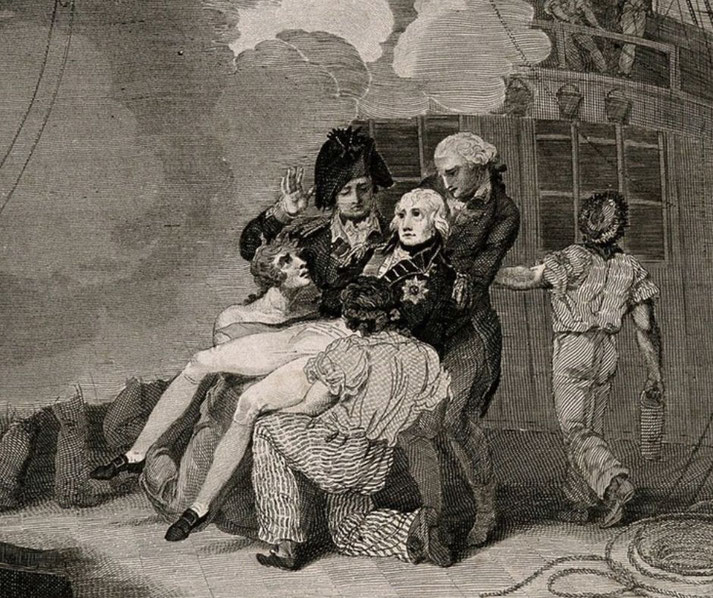Was Horatio Nelson really the greatest British naval commander or is it a convenient myth?

Horatio Nelson has become closely associated with 19th century British maritime dominance, often cited for his unparalleled strategic acumen and daring leadership.
From the smoky decks of the Battle of Cape St. Vincent to his final, fateful hours at Trafalgar, Nelson's life was a whirlwind of bravery, controversy, and tactical genius.
But what truly set him apart from his contemporaries?
Was his approach to naval warfare revolutionary, or merely a product of its time?
How did his personal life and the scandals that surrounded it affect his career and legacy?
And, ultimately, does his impact justify the title of Britain's greatest naval commander?
The life of a legend
Horatio Nelson, born on September 29, 1758, in Burnham Thorpe, Norfolk, emerged as one of the most renowned naval commanders in British history.
His early life, marked by a strong ambition to pursue a naval career, saw him enter the Royal Navy at the age of 12.
Nelson quickly distinguished himself with his exceptional skills and bravery.
His first significant experience came during the American Revolutionary War, where he served in operations in the Central American seas and the West Indies, honing his naval and leadership skills.
Nelson's reputation as a formidable naval strategist began to solidify with his service in the Mediterranean during the French Revolutionary Wars.
Nelson's greatest military achievements
His first major success came at the Battle of Cape St. Vincent on February 14, 1797, where as a Commodore, he played a crucial role in the British victory over the Spanish fleet.
His bold maneuver of cutting through the enemy line was a daring tactical decision that demonstrated his willingness to defy conventional naval tactics for greater strategic advantage.
This battle was a turning point in his career, earning him widespread recognition and a promotion to Rear Admiral.
However, it was also during this period that Nelson lost sight in his right eye due to an injury sustained in Corsica.
The Battle of the Nile, fought on August 1, 1798, was perhaps Nelson's most strategic triumph.
As a Rear Admiral, he led the British fleet against the French anchored in Aboukir Bay, Egypt.
His decision to attack the French fleet both from seaward and inshore sides was a masterstroke, trapping the French and leading to a decisive British victory.
This victory not only bolstered British control over the Mediterranean but also made Nelson a national hero in Britain.
His innovative approach to naval warfare, characterized by aggressive tactics and unconventional strategies, became a hallmark of his command style.
In the Battle of Copenhagen on April 2, 1801, Nelson, now a Vice Admiral, was part of a British effort to break the League of Armed Neutrality by attacking the Danish-Norwegian fleet.
His leadership was pivotal in this hard-fought battle. Despite the initial confusion and heavy resistance, Nelson's persistence and tactical acumen turned the tide in Britain's favor.
Despite being signaled to withdraw by his superior, Admiral Sir Hyde Parker, Nelson famously put his telescope to his blind eye, claiming he did not see the signal, and continued the assault, a decision that proved to be pivotal in the battle's outcome.
Nelson's crowning achievement was the Battle of Trafalgar, fought on October 21, 1805.
This battle against the combined fleets of France and Spain was crucial in preventing Napoleon's invasion of Britain.
Nelson's innovative tactics, including the use of a perpendicular approach to break the enemy's line, revolutionized naval warfare.
The victory at Trafalgar ensured British naval supremacy for over a century and was a defining moment in Nelson's career.
However, it was also during this battle that Nelson was fatally wounded, dying aboard his flagship, HMS Victory.
His death was mourned as a national tragedy, and his legacy has since been celebrated as one of the defining figures in British naval history.

Was Nelson actually a good commander?
Nelson's bravery was legendary. He led from the front, often engaging in the thick of battle.
This fearlessness not only earned him the respect and loyalty of his men but also instilled a high level of morale and fighting spirit within his fleet.
His presence on the battlefield was a rallying point for his sailors, who were often inspired to perform feats of extraordinary bravery themselves.
Strategically, Nelson was known for his creativity and willingness to depart from traditional naval tactics.
His approach was often unconventional, focusing on rapid, decisive actions that caught the enemy off guard.
This is best exemplified in his tactics at the Battle of Trafalgar, where he employed a bold strategy of breaking the enemy line, a move that was instrumental in securing a decisive victory.
His ability to think outside the conventional tactical frameworks of his time demonstrated a deep understanding of naval warfare and an ability to adapt to the changing nature of naval battles.
Perhaps Nelson's most defining characteristic was his ability to connect with and lead his men.
He was known for his charismatic personality and his ability to communicate effectively with sailors of all ranks.
Unlike many of his contemporaries who maintained a strict and distant relationship with their crews, Nelson fostered a sense of camaraderie and mutual respect.
He often walked the decks, speaking directly to his men, listening to their concerns, and encouraging them.
This approach not only endeared him to his sailors but also created a sense of loyalty and dedication that was crucial in battle.
Finally, Nelson's leadership was also marked by a strong sense of duty and a relentless pursuit of victory.
He was deeply patriotic and committed to the success of the British Navy. This commitment often led him to take significant personal risks, as seen in his numerous injuries in battle, including the loss of an arm and sight in one eye.
His resilience in the face of these injuries and his continued dedication to his duty further bolstered his standing among his men and his superiors.
How did Nelson impact upon British dominance?
Horatio Nelson's impact on British naval dominance during the late 18th and early 19th centuries was profound and far-reaching.
His series of victories against the navies of France and Spain played a crucial role in establishing and maintaining British naval supremacy during a critical period in European history.
The victory at Trafalgar had long-lasting implications, ensuring British control of the seas for the next century and allowing Britain to expand its empire and trade networks globally without the threat of a major naval rival.
Nelson's impact on British naval dominance was also evident in his approach to naval warfare.
His tactics, characterized by aggressive maneuvers and innovative strategies, were a departure from the conventional naval tactics of the time.
His success in employing these tactics demonstrated the effectiveness of adaptability and innovation in naval warfare, influencing British naval strategy for generations to come.
Moreover, Nelson's leadership style had a lasting impact on the Royal Navy.
His ability to inspire and motivate his men, his emphasis on discipline and training, and his charismatic leadership contributed to a strong and effective naval force.
The morale and fighting spirit of the British Navy under Nelson's command were unmatched, and these qualities were integral to the Navy's continued dominance.
The flaws in the myth
While Horatio Nelson is celebrated as one of Britain's greatest naval heroes, his life and career were not without controversies and criticisms.
One of the most notable controversies surrounding Nelson was his personal life, particularly his affair with Emma, Lady Hamilton.
This relationship, which began while Nelson was still married, was a scandal of its time.
It not only caused a public outcry but also strained Nelson's relationship with his superiors and the Admiralty.
The affair was seen as a blemish on Nelson's otherwise illustrious career and was often used by his critics to question his moral character.

Another aspect of Nelson's career that drew criticism was his involvement in the Neapolitan affair in 1799.
After the recapture of Naples from Napoleon's forces, Nelson supported the brutal repression of the Neapolitan Jacobins.
His actions, which included the controversial execution of Admiral Francesco Caracciolo, a former Neapolitan naval officer who had joined the Jacobins, were criticized for their severity and lack of legal process.
This incident raised questions about Nelson's adherence to the principles of justice and his respect for the rule of law.
Nelson's approach to warfare also drew criticism from some quarters. His aggressive tactics, while often successful, were sometimes seen as reckless and overly risky.
Critics argued that his willingness to engage in close combat and to expose his ships and men to significant danger was a gamble that could have easily led to disaster.
This criticism was particularly vocal following the Battle of Santa Cruz de Tenerife in 1797, where Nelson's attack led to heavy British casualties and his own loss of an arm.
Moreover, Nelson's tendency to act on his own initiative, sometimes in defiance of orders, was a point of contention.
His decision during the Battle of Copenhagen to ignore the signal to withdraw from his superior, Admiral Sir Hyde Parker, was celebrated for its boldness but also criticized as insubordination.
While this action was ultimately successful and earned him accolades, it highlighted a willingness to disregard direct orders when he felt confident in his own strategy.
What do you need help with?
Download ready-to-use digital learning resources
Copyright © History Skills 2014-2025.
Contact via email
With the exception of links to external sites, some historical sources and extracts from specific publications, all content on this website is copyrighted by History Skills. This content may not be copied, republished or redistributed without written permission from the website creator. Please use the Contact page to obtain relevant permission.





